Logistics term is a very famous word in international and local trading. It is very useful to learn about logistics for the success of a business. In this blog, we are going to identify what is logistics and other relevant information about the logistics industry.
History of logistics
History said that The word logistics is first found in the summary of the “art of war” book which is written by Antoine-Henri Jomini, who was a writer as well as a military officer in swiss.
The word logistics came to the English language in early 1846, from the French word “logistique”.
Definition of the logistics
The very first definition of logistics by Jomini,
“the art of well-ordering the functionings of an army, of well combining the order of troops in columns, the times of their departure, their itinerary, the means of communication necessary to assure their arrival at a named point”
Oxford Dictionary’s definition of the logistics
”the practical organization that is needed to make a complicated plan successful when a lot of people and equipment are involved” or “the business of transporting and delivering goods”.
Military definition of the logistics,
“The discipline of planning and carrying out the movement, supply, and maintenance of military forces”
Definition of logistics management?
Definition of Council of Supply Chain Management Professionals (CSCMP)
“Logistics management is that part of supply chain management that plans, implements, and controls the efficient, effective forward and reverses flow and storage of goods, services, and related information between the point of origin and the point of consumption in order”.
Logistics management is a subset of supply chain management.
What is the meaning of Logistics?
Logistics is simply defined as related activities within a supply chain. All the activities are related from the origin point of raw material supply and the end with the consuming finished product.
Logistics activities start with the planning to purchase raw materials and end with the final customer consuming the product. These activities need to do with proper planning and proper management of the activities called logistics.
What is Logistics?
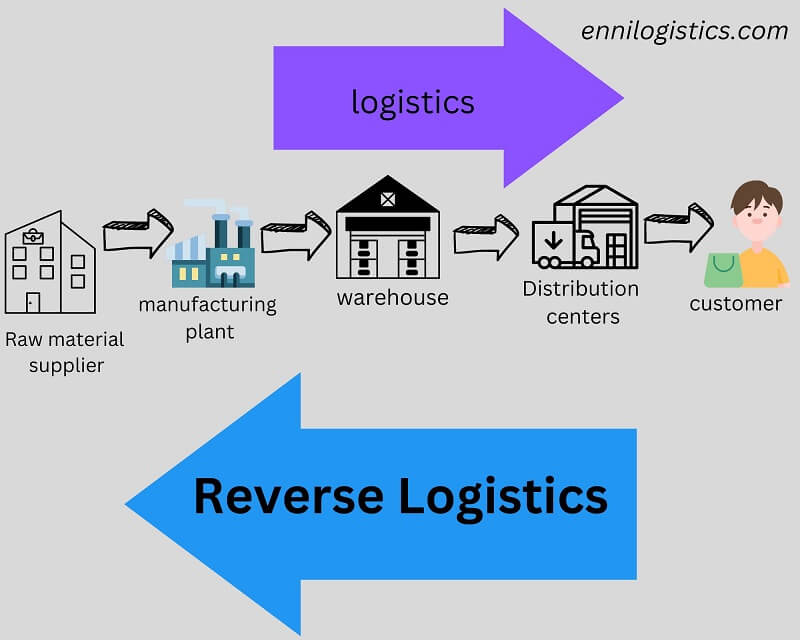
It is a flow of goods or services from one point to another by providing storage facilities and transporting facilities in a supply chain. There is money and information flow also.
Reverse logistics
With the involvement of the same process from point B to Point A called reverse logistics.
In a supply chain reverse process of operational activities is called reverse logistics. Product flow starts with the customer to the manufacturer.
So we can say reverse logistics is the “operational process of reverse flow of a supply chain in a cost-effective and efficient.” it is involved planning and executing.
Items are involved with the reverse logistics process, it may be value addition otherwise they should be disposed of.
Reasons /causes for reverse logistics?
- Customer returns
- Unsold products
- Refurbishing
- End of life/exceeds the expiry date.
- Recycling
- Reuse of packaging
- Remanufacturing
- Delivery failure
- Repair and maintenance
- Warranty claims
Inbound logistics
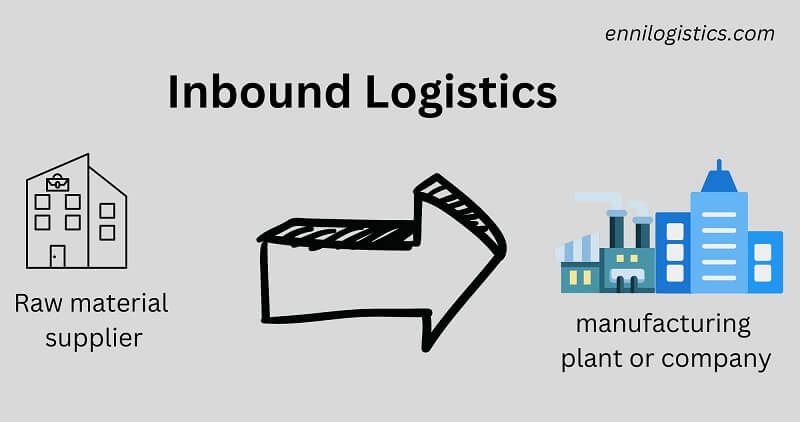
Delivery is done for a company or plant to manufacture something. It is towards the company.
Example: Garment production
Assembling raw materials to warehouse and manufacturing products.
Outbound logistics
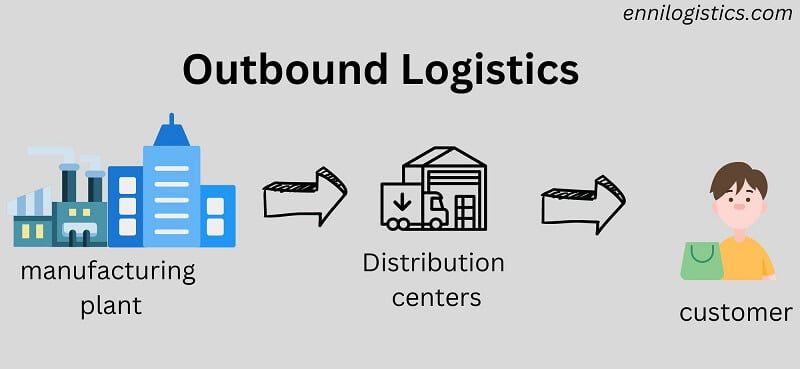
This is the process of transport and delivery storage done after the manufacture of a product. selling items to end users, outlet centers, and distribution centers for sale.
for example, after the manufacturing of the garment, send them to sales outlets or export centers.
Main challenges for a logistics company?
- Organization effective coordination is less.
- Warehouse management errors
- Internal communication errors
What are the logistics activities in a company?
- Purchasing of raw material
- Delivery of raw materials to warehouse
- Store raw materials/unfinished products or finished goods in a warehouse.
- The manufacturing process of goods
- Value Addition and packing
- Distribution and marketing
What is the digital trend in the logistics Industry?
- Logistics planning through artificial intelligence
- Planning routes for transportation, demand forecasting for manufacturing goods, and warehouse planning through an automated system
- Shipment tracking and tracing through a digital system
Logistics job market
When considering logistics jobs, is a well-paid job field.
airport, seaport and terminals, warehouses, manufacturing plants, distribution centers, shipping lines(NVOCC), freight forwarding agencies, and custom house agents. import and export companies, and more.
Who is the logistician?
A person who are work in a logistics background company, calls a logistician. Becoming a real logistician is not an easy task. Surviving in the logistics industry is not an easy task.
It would help if you had better practice working under pressure and always ready to face new challenges, moral self-motivation, and quick decision-making with balancing cost and customer or company expectations. You have to balance many of the things in a supply chain while you should meet the seven rights of logistics.
Carrier opportunities in the logistics industry
Customer service
- Order processing officer
Customer service officer
Inventory
- inventory manager
- inventory planner
- stock controller
Planning
- Business analyst
- supply chain analyst
- master planner
Distribution
- distribution manager
- distribution planner
- warehouse manager
- warehouse supervisor
Management
- Logistics manager
- supply chain manager
- Inventory manager
Production and manufacturing
- production manager
- production planner
- operations planner
- production scheduler
Procurement
- procurement manager
- purchasing manager
- supply manager
- purchasing officer
- contracts manager
- procurement analyst
- Purchasing Assistant
Transport
- fleet manager
- transport manager
- depot supervisor
- transport scheduler
Information
- applications specialist
Other shipping industry related
- sales and marketing officer
- custom house agent
- import and export officer
- freight forwarder
Seven Rights of Logistics/7 R’s of Logistics
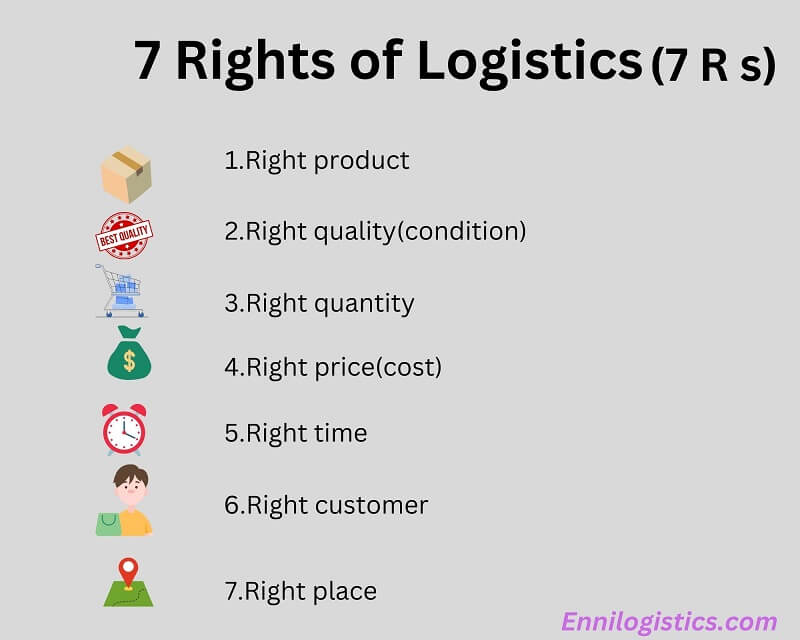
Seven rights are the most important concept of logistics. Are you work in a supply chain or logistics-related Industry? Do you apply the 7 rights of Logistics? When you are working in a supply chain it is extremely important to know about the 7 rights of Logistics.
It is not only a theory of Logistics management but also the most effective things to be used in industry.
- Right product
- Right quality(condition)
- Right quantity
- Right time
- Right price(cost)
- Right customer
- Right place
1. Right product
When the customer has ordered a product from your company through an online or traditional purchasing process site shopping order requesting by call or another method of order request. It should be the same product that which customer has ordered.
Do not use a substitute or alternate products for customer requirements. In case you have sent another product to a customer you lose your customer or the product will return. It is cost and time wasting to your company. It will create customer dissatisfaction with your company’s goods and services so if their feedback is bad while customers will not come to you back.
It means you lose your money, time as well as customers. For the survival of the industry, you need to take care of customer handling. If customers are happy your company will boost.
2. Right Quality/Right condition
Delivered products should be of the right quality that has customer ordered. Most customers think about the quality standard of the product other than the cost of the product. So they expect and demand high-quality products according to the worth of the money they have spent.
Then you need to provide products with customers expecting quality. In case you are not able to send the product in the right quality you will lose your customer as well as your company reputation.
Condition is affected to all the products. But specially condition is a considerable factor in the perishable cargo sector. It means fresh vegetables, fruits, flowers, meat, etc. You need to fulfill customer requirements in the right condition which is the customer’s expected condition.
When considering perishable goods if it is not delivered in the right condition the whole consignment is a waste and a loss of money. So the right condition is the most considerable factor in logistics. Not only perishable goods but also other products need to supply in the right condition.
3. Right Quantity
Quantity means is volume or amount of the product that has one order. It should not be less or more than the actual order. Quantity should match with customer’s order otherwise it is a burden to the customer.
If an excess of the actual customer order quantity customer has to pay more money than he expected it will be a problem as well as it is unwanted things, the customer not having space to store additional things likewise so many problems occur for customers when issuing goods more than a requirement.
On the other hand, low quantity is also a big problem for a customer. He can’t supply others in the right quantity which is a threat to customer business as well as his reputation likewise, he couldn’t to his expectation of ordering goods.
4. Right price
Also called the right cost. Pricing is a very important factor in a business.
Price is the commercial value for a product or service paid by the customer to the seller. Most of the time right price depends on the other 6 rights of the logistics process. When considering a business price covers the cost of the production and also included the profit margin of the product.
5. Right time
In logistics, concept time is the most considerable and most curial factor when delivering goods. When delivering an order other factors are right but the time is not at the right time, That consignment is a failure due to customer satisfaction, and also as a company, they do not cater products at the right time so it loss competitive advantage in the field.
As an example, we can discuss seasonal products like Christmas cards and decorations. Those items should be delivered to the market during the Christmas season. If you provide goods after Christmas you will not be able to sell your products. As well as you have introduced before the Christmas season you could reach an expected amount of customers. So it will be a loss. The better thing is to provide goods in time for the expected target season. Then you can earn profit.
When considering signal consignment or online order it should be delivered in a customer-requested time. Otherwise, customers feel unhappy. Due to he has to face many problems.
If the order has been placed too early customers have to find a place for storage and the product is perishable which would be a big problem. When considering these things you have to deliver your order at the right time.
Right-time delivery is a challenge for a logistics company. You can avoid wrong-time delivery you can manage your delivery team and better coordinate with internal parties with a great plan. You can provide excellent service.
6. Right place
The place is also an essential considerable factor in logistics. When considering last mile operation right place delivery is a most considerable factor. By using a tracking system you can track places correctly and deliver the products.
When thinking about another product delivery into a market you must identify the correct market to supply goods. May your product demand vary with the geographical and demographical factors and other factors.
7. Right customer
when considering ordered products or services it should reach relevant customers. If you deliver to the wrong customer, the actual customer is dissatisfied so you will lose that customer while incurring unnecessary costs such as returning costs. And also when supplying products to the right customer supply chain process of the product is going smoothly.
Reverse Logistics: Everything You Need To Know
What Is Container Tracking: Everything You Need To Know
Warehouse Management & Warehouse Management System: Everything You Need To Know
Procurement And E-Procurement: Everything You Need To Know
What Is (NVOCC) Non-Vessel Operating Common Carrier/Co Loader?
Freight Forwarder: Everything You Need To Know
Customs House Agent(CHA)/Customs Broker: Everything You Need To Know
7 Rights Of Logistics (7R S): For Learning Logistics Easily

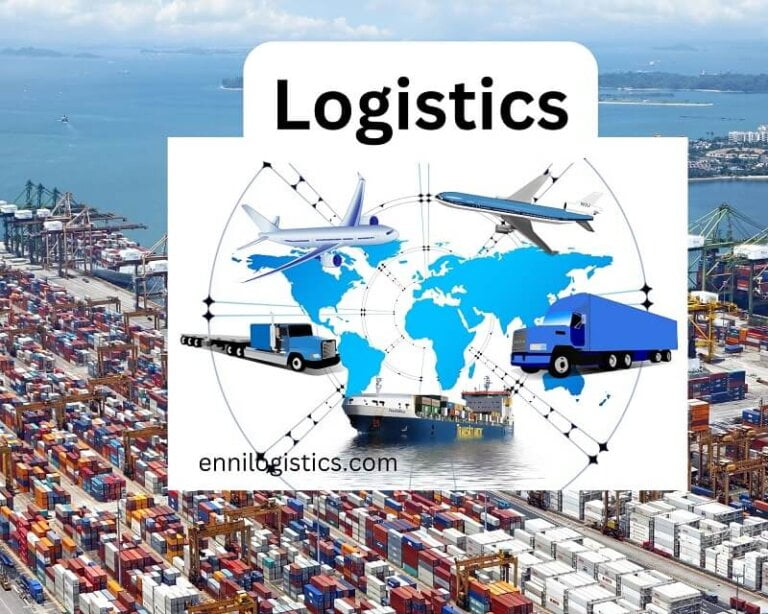
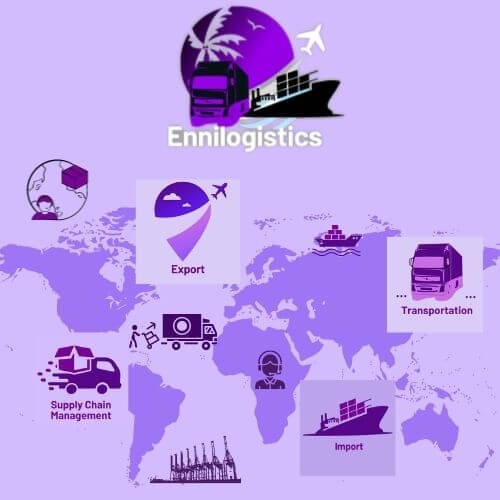



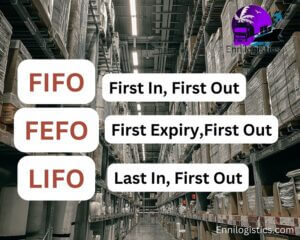
2 thoughts on “What is Logistics? simple explanation with examples”
Great Insight
thanks